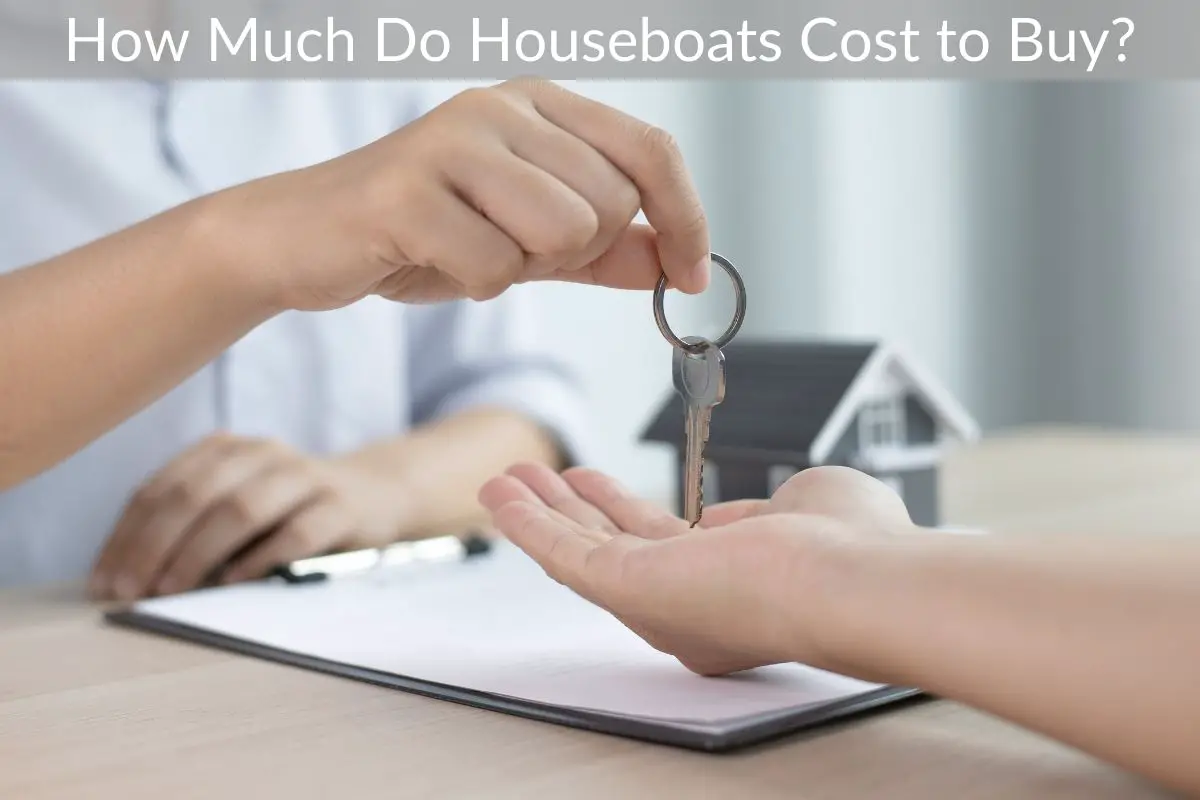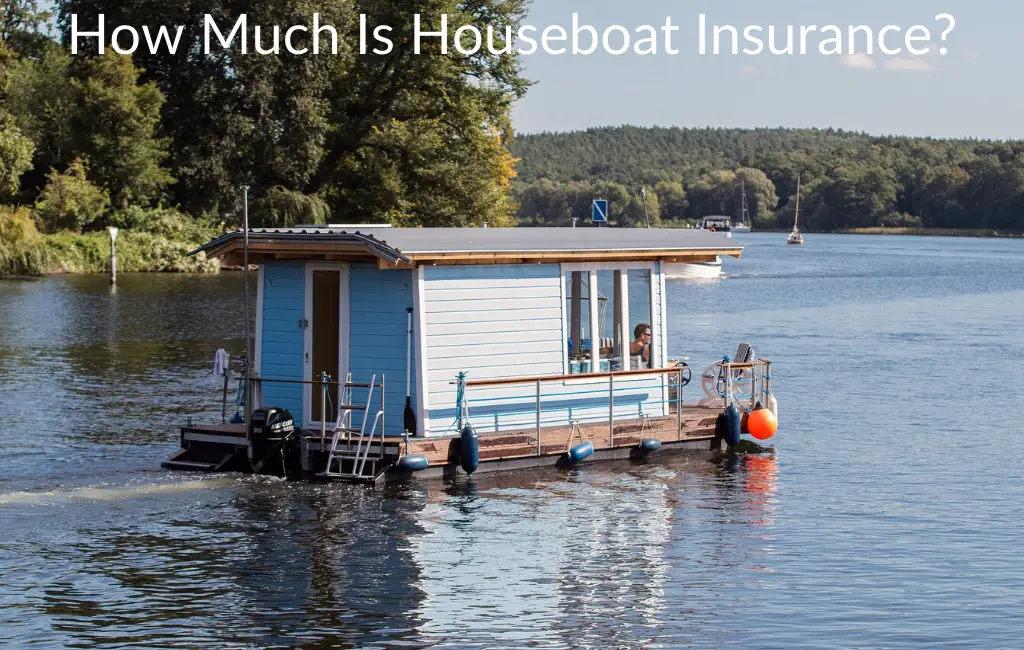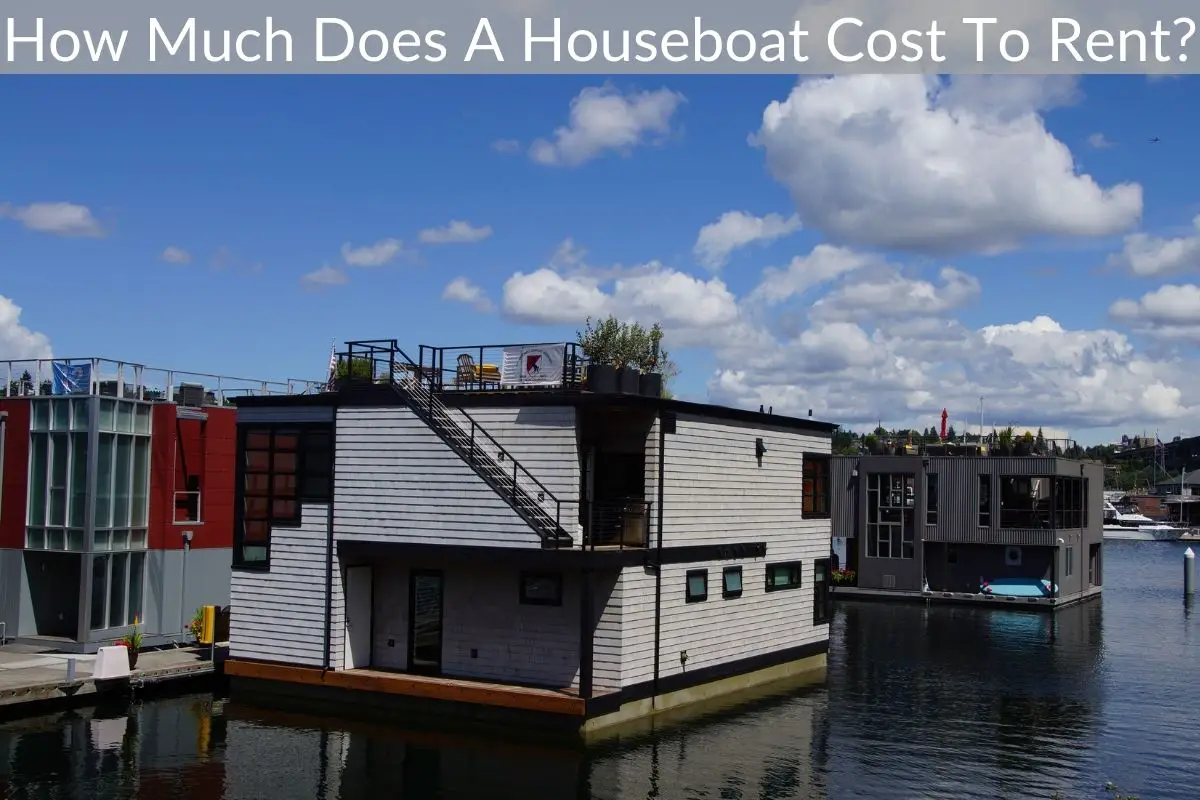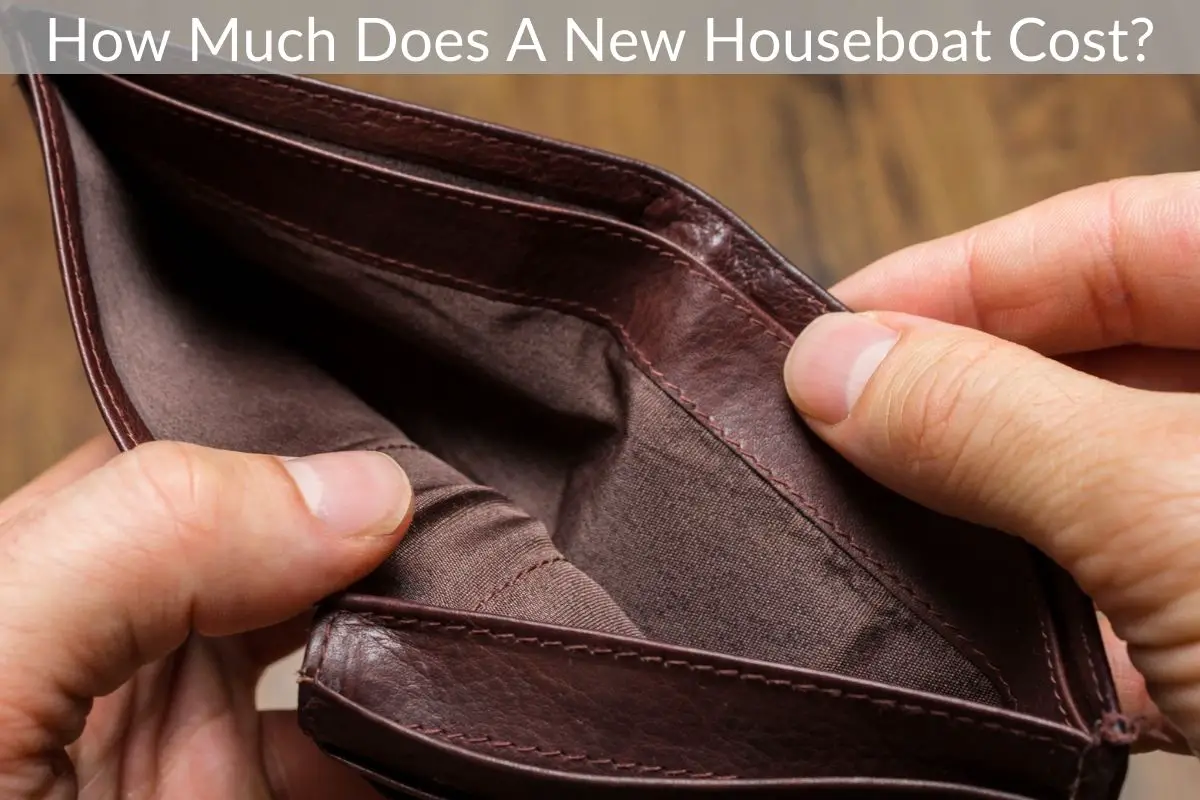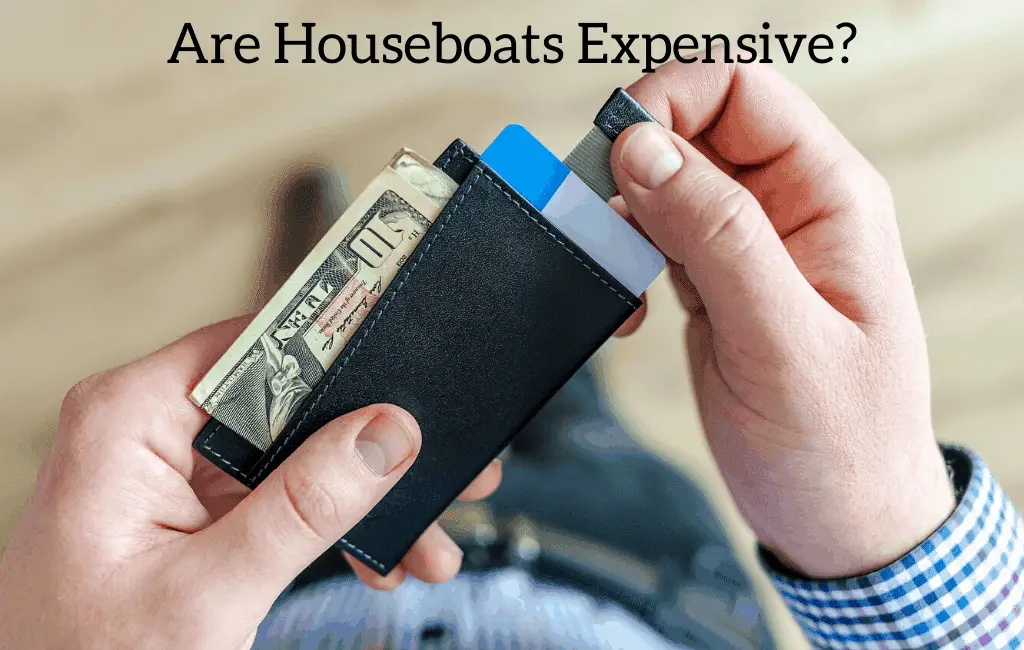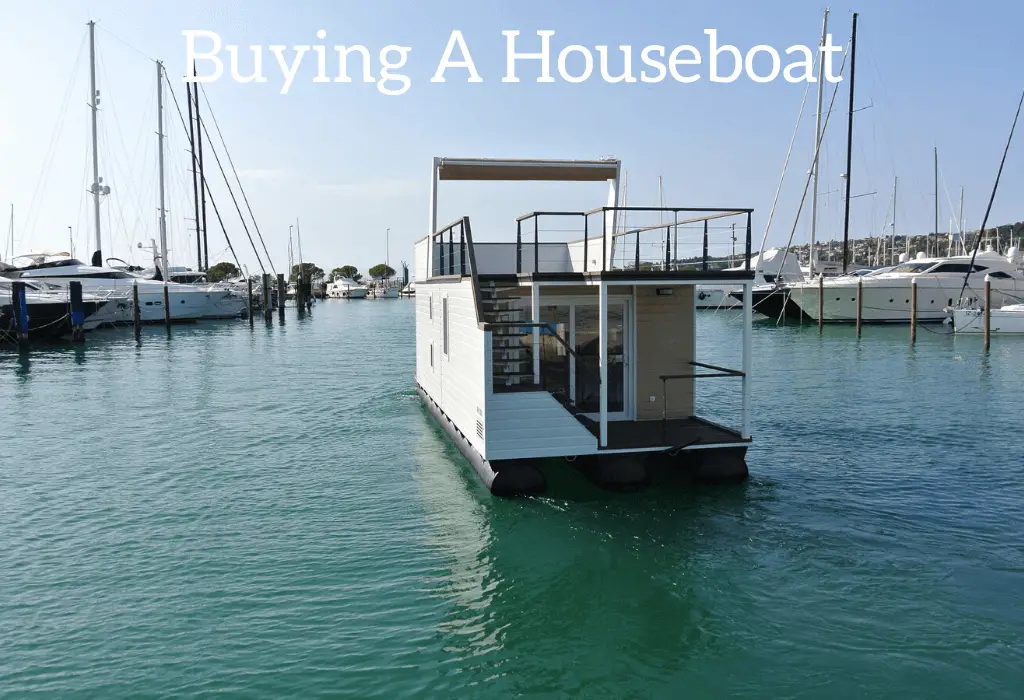*This post may contain affiliate links. As an Amazon Associate we earn from qualifying purchases.
When you own a houseboat, you may want to consider claiming the interest on it as a second home. Houseboats can qualify as a second home if you meet certain criteria. In this article, we will go over the criteria and limitations for claiming your houseboat as a second home. You may also want to consider the houseboat interest deduction if it’s part of your homestead deduction.
Tax implications of claiming a houseboat as a second home
The tax implications of claiming a houseboat as your second home may be complicated, but you can take advantage of the tax benefits of claiming your boat as your primary residence. The IRS will ask whether your boat has a bedroom, kitchen, and bathroom and whether you actually live on it. To prove you actually live there, you should get your mail delivered to it. You can even list your boat address on your driver’s license and voter registration card.
Another tax benefit to claiming a houseboat as your second home is the ability to claim your boat’s personal property taxes. These taxes are deductible, but you must charge them annually and itemize your deductions. If you’re filing your federal taxes, be sure to itemize your deductions. The IRS has strict rules about second homes. The best option is to claim a lakefront cottage or RV.
You can claim your boat’s mortgage interest as a second home as long as you use it as a secondary residence. You can also take a home mortgage interest deduction on your boat. Generally, you can deduct the interest from your home mortgage if you itemize your expenses. If your boat has sleeping quarters, you can also claim the mortgage interest. If you have a second mortgage, you can also deduct the points you paid to secure the loan.
In order to claim a houseboat as a second home, you need to have the boat’s full IRS requirements met. Moreover, you can claim interest on the loan if you’ve taken out a secured one. However, the IRS is easy to check on the details of claiming a houseboat as a second home. The IRS allows the deduction for the loan interest, but it also requires that you use IRS forms for the same.
Among the largest tax deductions for recreational boat owners, you can claim the loan interest for the boat. But before you can claim the interest, you need to have sleeping quarters and cooking facilities on board. In addition, you need to use the boat at least 14 nights a year, which is equal to 10 percent of the time it’s rented out. For this tax deduction, you need to have the boat furnished with kitchen equipment and a bathroom.
The tax consequences of claiming a houseboat as if it were your primary residence? It depends. There are some exceptions, though. It is best to check with the IRS before claiming the deduction, as you will need to allocate your time for both types of use. However, you should be aware that there are a number of other conditions that you must meet to qualify. And you must be honest about your usage of the homeboat.
Qualifying criteria for claiming a houseboat as a second home
There are two basic requirements for claiming a houseboat as if it were a second home: first, the houseboat must be your primary residence, or your place of abode, most of the time. Secondly, you must have lived in the houseboat for at least two years before claiming the houseboat as a second home. Generally, you can claim the interest you pay for a houseboat as a deduction if you live in it at least half the year.
The IRS defines home as a structure that has sleeping, cooking, and toilet facilities. A house, condominium, mobile home, travel trailer, or boat may qualify. If a houseboat is your second home, it may be eligible to claim a 20% deduction for certain expenses. However, if you use a houseboat for business purposes, you cannot claim a deduction for the rental expenses.
The IRS has a very broad definition of “house.” A boat that provides sleeping, cooking, and toilet facilities is regarded as a second home under the IRS’s definition. Without these amenities, however, a boat cannot qualify for a second home deduction. However, there are a few other exceptions to the rule. To qualify for the deduction, your boat must have a sleeping berth, galley, and toilet facilities.
Limitation on claiming a houseboat as a second home
Are you wondering if you can claim a houseboat as a second home? Fortunately, yes, it is possible. The Internal Revenue Service treats your boat as a second home if it provides sleeping, cooking, and bathroom facilities. However, if the boat does not meet these requirements, you cannot claim it as a second home. You will need to live on it for a certain number of years in order to qualify.
Does a Houseboat Qualify As a Second Home?
If you’re wondering if your houseboat qualifies as a second home, you’re not alone. More people are choosing to make their houseboat their primary or second residence. You can even deduct the mortgage interest from your houseboat loan. Two tests must be met before it can be designated as a second home, however. If the houseboat meets one of them, it qualifies as a second home.
Buying a houseboat
Purchasing a houseboat as a second home may seem like a great way to enjoy the water while staying in a condo or apartment, but it’s also a big financial commitment. Most houseboat loans are considered portfolio loans and have stricter credit requirements. In addition to credit score, lenders pay attention to other financial assets, such as property and stocks, so borrowers need to know their financial history before applying for a houseboat loan. As a rule of thumb, a 20% down payment is required. However, this figure may vary from lender to lender.
Buying a houseboat requires a large down payment, as well as a high credit score. If you’re not confident about your credit, you can always find a mortgage broker. Additionally, when you buy a houseboat with a head and galley, the interest you pay on the boat is tax deductible, so you’ll save even more money when tax time rolls around.
Before making a purchase, consider the benefits of houseboats for second homes. Houseboats are great for year-round living, and they are available in all sizes. Whether you’re looking for a small, one-person cottage, or a large, two-story home for you and your family, there’s a houseboat out there for you. There are also some advantages to purchasing a houseboat that may surprise you.
A houseboat is subject to state and local property taxes. Some cities charge an annual property tax on houseboats, but you can avoid these if you pay your property taxes upfront. Besides property taxes, houseboats also lose value over time. The depreciation will end up costing you money in the long run, so you’ll need to budget for maintenance and utility bills. If you decide to rent the houseboat, you can also deduct your interest on the houseboat, which is tax deductible.
Purchasing a houseboat is not a common option. Most people purchase them as a weekend getaway or yearly lake vacation. While purchasing a houseboat as a second home is not an everyday purchase, it can be a great investment if you plan to use it often. Houseboats vary greatly in price and size and can be as luxurious or as affordable as you’d like.
Buying a floating home
While purchasing a houseboat may not be the most exciting investment, it is possible to turn it into a second home. Whether you live on a dock or float in the ocean, it can be a great way to enjoy the serenity of the outdoors. Docks where floating homes are built are often far removed from the city. Also, the natural beauty of the land and water remains intact. As an added bonus, you can rent out your floating property for bachelor and bachelorette parties, reunions, and honeymooning couples. Renting out your floating property can even help you pay off your second mortgage.
Although purchasing a houseboat can be expensive, it is usually much less expensive than buying a traditional home. If you plan to use it as your vacation home, it can be a great way to save money and meet personal goals. Of course, if you plan on selling your floating home in the future, you should look into a traditional home instead. It may be possible to deduct mortgage interest from your income, but you must have facilities on board.
Depending on the lender, the credit score you need to qualify for a houseboat loan can be anything from excellent to fair. Your down payment will depend on the size of your houseboat, the amount of equity you want to draw, and the type of financing you have available. Usually, you’ll need to put down a significant amount of money. You should have around twenty percent of the houseboat’s purchase price to qualify for the loan.
Another benefit of purchasing a houseboat is that it will allow you to deduct the mortgage interest, which is deductible as a second home. The tax advantages of buying a houseboat are numerous. It will provide you with a new leisure activity and allow you to take advantage of tax breaks on the interest that you pay on it. You’ll also be able to deduct the interest you pay on your houseboat if you also own a conventional home.
Taxes on a houseboat
If you live on a houseboat part of the year, you might be wondering if you can claim it as a second home. Luckily, that’s entirely possible. In fact, the Internal Revenue Service recognizes a houseboat as a second home if it provides sleeping, cooking, and toilet facilities. The key is to make sure you have all three elements before you claim it.
While floating homes are full homes on a floating foundation, houseboats are smaller and less expensive. Although upfront costs are lower, you’ll need to consider additional expenses like moorage fees, fuel costs, and sewage pumping. Insurance costs are also significantly higher than they would be for a traditional home. On top of all these costs, the sales tax on a houseboat is up to three times higher than that of a traditional home.
When you decide to make your houseboat your second home, there are many ways to minimize your tax burden. Some houseboat owners use it for business or charity purposes. Depending on the circumstances, taxes on a houseboat can be less than you might think. If you plan to live on your boat part of the year, you may want to consult a tax adviser to make sure you don’t have any hidden costs.
There are many other taxes that may be associated with houseboat ownership. For example, if you own land where your boat docks, you’ll need to pay sales tax for the property in that area. Also, you’ll need to pay registration and marina fees, as well as dock and storage fees. These costs will add up quickly if you’re not paying attention to the fine details.
There are some exceptions to this rule, however. Some states, such as Delaware and Rhode Island, do not charge sales tax on boats. New Yorkers, on the other hand, have to pay 8.25 percent on the first $230,000 of their boat purchase. Moreover, state sales taxes are typically included in the marina fees. As long as you itemize your expenses and pay the appropriate taxes, you should be fine.
Keeping a houseboat on board
IRS rules define a home broadly. If it has sleeping accommodations, cooking facilities, and toilets, it is treated as a second home. If it does not have any of these features, however, it cannot qualify. If you do not live on board, you cannot claim it as your home. If you own a houseboat with living and cooking facilities, you can claim it as a second home.
The Seattle Department of Construction and Inspections recently closed a window for approving houseboats. If you own a houseboat in Seattle and live on board, you need to prove that you lived on board the vessel before the 2014 window closed. In order to qualify for this special permit, you need to show that you lived on board the vessel for at least a year before the window closed.
A houseboat is a popular recreational activity. Depending on the size, a houseboat can be anywhere from a thirty to forty-foot vessel to a luxurious seventy-foot houseboat. Houseboats are a great way to explore your local scenery while remaining close to outdoor activities. In addition to enjoying the fresh air, houseboats allow you to easily move your living quarters from one place to another.
If you decide to keep a houseboat on board, you’ll need to pay for insurance and moorage, and that can be expensive. The cost of insurance is double to triple the price of home insurance. Another expense is oil changes and tune-ups. A good houseboat service can cost up to $30 per hour. Then there’s the expense of paying docklords for a houseboat.


